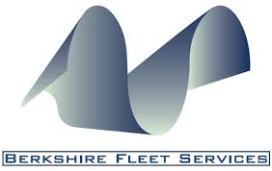Shippers Seek Nat-Gas Fleets to Boost Environmental Image
This story appears in the July 15 print edition of Transport Topics.
Some of the nation’s largest shippers said they are shopping for carriers to haul freight using natural gas-powered trucks, a trend that could spur further use of the alternative fuel.
Owens Corning, the Ohio-based insulation and shingles manufacturer, is among those pursuing carriers running natural-gas trucks and identifying routes where adequate fuel is available.
“We probably, four out of five days, have some kind of conversation with a carrier about an opportunity in one of these lanes,” said David Uncapher, head of transportation sourcing and operations for the manufacturing firm.
Twenty-two lanes already are under contract to carriers using natural gas or waiting on delivery of trucks, Uncapher said.
With 40 factories nationwide, Owens plans to double the amount of freight — currently 4% of $400 million annual spending — on natural-gas trucks, he said.
Procter & Gamble, maker of Tide and other consumer products, recently announced it will put 20% of its freight on natural-gas trucks in the next two years and has contracted with eight carriers, beginning this month.
“Our mantra is fewer, cleaner miles,” said Sean Turner, head of Procter & Gamble’s logistics purchasing group.
Shippers are adding critical momentum in the alternative fuel marketplace, carriers said.
“Without [shippers] . . . saying, ‘Here’s freight,’ there’s no reason for me to order [natural-gas] trucks,” said Mike DelBovo, president of Saddle Creek Transportation of Lakeland, Fla.
Saddle Creek is adding 100 natural-gas trucks to the 106 already in its 420-unit fleet, said DelBovo. The carrier will haul for Procter & Gamble and runs a pilot program for Office Depot in Florida. Office Depot also has pilots on dedicated routes in Philadelphia and Chicago.
Both compressed natural gas and liquefied natural gas burn cleaner than diesel, according to experts, but the overwhelming incentive — particularly for trucking — is its lower cost.
LNG, for example, generally costs $1.50 less on a per-gallon equivalent basis. However, trucks powered by natural gas cost substantially more to acquire.
But shipper interest in natural gas is what’s underwriting the experiment the trucking industry needs to determine if natural gas is viable long term, said trucking industry consultant Noel Perry.
“The people that actually purchase the equipment and run the experiments are sophisticated enough to know if it makes sense,” he said.
Among the other shippers hiring carriers running natural-gas trucks is SCA, the Sweden-based tissue maker that is running cargo on 15 natural-gas trucks between its plant in Neenah, Wis., and distribution centers.
“As our shuttle contracts come due in other regions, we’re going to look at the availability of natural gas at our other plants and put that as an option in the bid,” said Cliff Barber, SCA’s customer fulfillment director.
SCA also has plants in Alabama, Arizona, Kentucky and New York. SCA is using trucks supplied by Paper Transport, based in Green Bay, Wis.
Andersen Corp., the window maker, has seven natural-gas trucks running in and out of its Menomonie, Wis., plant and will add another seven this summer, said Lance Whitacre, Andersen’s vice president of logistics and order management.
“What we’ve tried to do is, rather than make it a mandate per se, we’ve tried to work with our carriers and our providers to look at where it has application,” Whitacre said.
While some shippers are moving full speed ahead, others are cautious, such as Covidien, the global medical products firm.
“Covidien is taking part in piloting this technology through two of our carriers to understand the financial and environmental viability,” said Lisa Clemence, director of corporate communications.
Meanwhile, Target Corp. has begun its own window-shopping in the natural-gas marketplace.
“We’re just getting started, but we would like to be an early adopter,” said Steve Carter, Target’s director of transportation strategy. “So we’re working with some of the natural-gas folks . . . right now, to learn.”
The alternative fuel has gained such traction with shippers that about 40 are leasing natural-gas trucks from Ryder System, said Scott Perry, vice president of supply management. “There’s conscious effort by every major shipper and distributor of product across the country to determine if natural gas has a place in their portfolio today,” Perry said.
Anheuser-Busch wholesale distributing company Golden Eagle Distributors in Tucson, Ariz., leases its 75 trucks from Ryder and 32 of them are powered by natural gas, reaping savings in fuel costs, said Golden Eagle senior vice president Bill Osteen.
“Our experience is about 40% less than what we were paying for diesel,” said Osteen, adding that the firm is moving to all natural-gas trucks.
Charles Musgrove, vice president of operations for Dillon Transport, said natural gas is going to change trucking. Illinois-based Dillon runs natural gas-powered tankers for Owens Corning.
“It’s going to change the carbon footprint; it’s going to change the rate structure,” Musgrove said.
That was the case with Andersen Corp. and Eagan, Minn.-based Dart Transit, Andersen’s Whitacre said. The companies agreed to eliminate the typical fuel surcharge and alter the price of shipments on the lanes where natural-gas trucks are utilized.
Senior Reporter Rip Watson contributed to this story.
|




